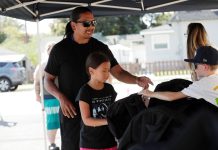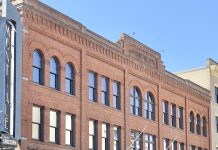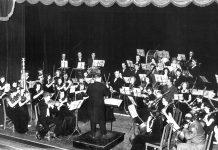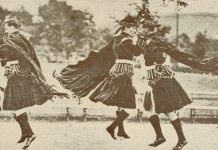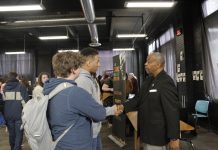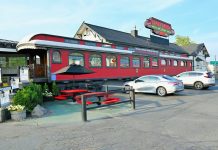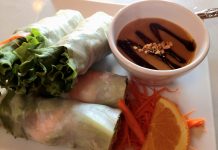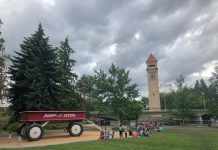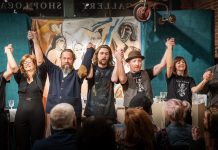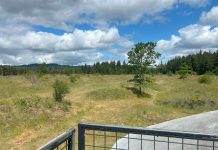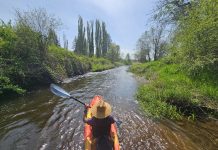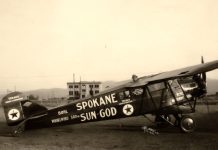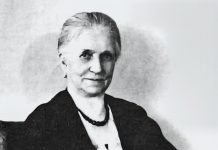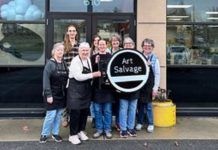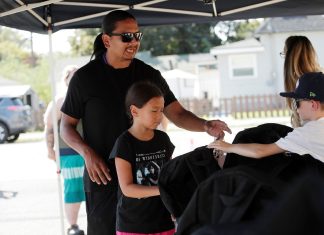The bustling platform of Spokane’s Northern Pacific Depot wasn’t an unusual sight in the early morning of June 28, 1909. Passengers milled about awaiting their respective departures and arrivals as dawn cast an ethereal glow on the tracks leading into the station, the promise of adventure on the horizon. In the distance, the Spokane Clock Tower chimed at the top of the hour as the clock struck 10 a.m. Right on time and from a cloud of steam, a locomotive puffed its way into the station, all the signs of a smooth journey. This, however, was no ordinary train, and the passengers on board weren’t in town for a friendly visit. This was a strategic stop for a group of women in the fight for equality. These women were suffragists, and they were about to make history on their first stop towards the National American Woman Suffrage Association convention in Seattle.
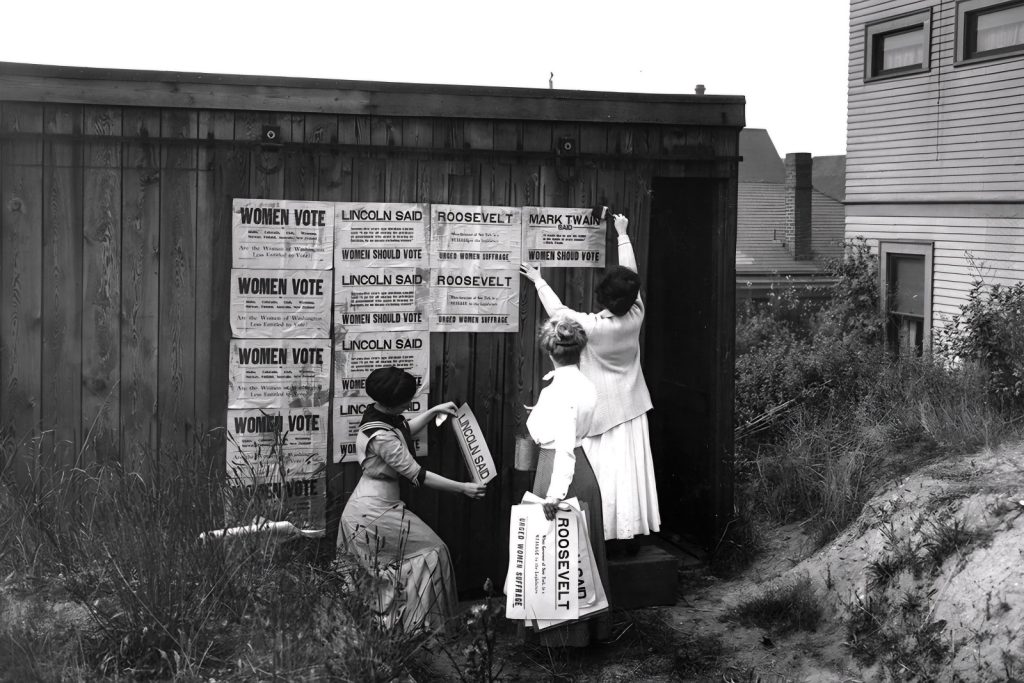
Washington: A Key Battleground with a Complicated Past for Women Voting Rights
The arriving train christened the “Suffrage Special,” carried a delegation of prominent figures in the women’s suffrage movement. Among them were 37 presidents of state suffrage associations, the esteemed Dr. Anna Howard Shaw, president of the National American Woman Suffrage Association, and many other leaders of national and international suffrage organizations from all across the country.
These leaders viewed Washington as a critical state in their fight for a national amendment. Victories in Wyoming, Utah, Colorado, and Idaho had already established a foothold in the West, but progress had stalled since Idaho’s enfranchisement in 1896. Winning suffrage in Washington would be a significant step forward.
However, the Washington campaign faced a unique challenge – the state’s complicated history with women’s suffrage. When Washington was a territory, women had briefly held the right to vote in the 1880s. However, their exercise of that right, particularly their support for temperance measures, led to a swift backlash and the loss of suffrage altogether. The weight of this loss pressed heavily on both the arriving leaders and local Spokane suffragists, like the formidable May Arkwright Hutton, who stood waiting for their arrival in quiet resolve, ready to join forces and rewrite the narrative for equal rights.
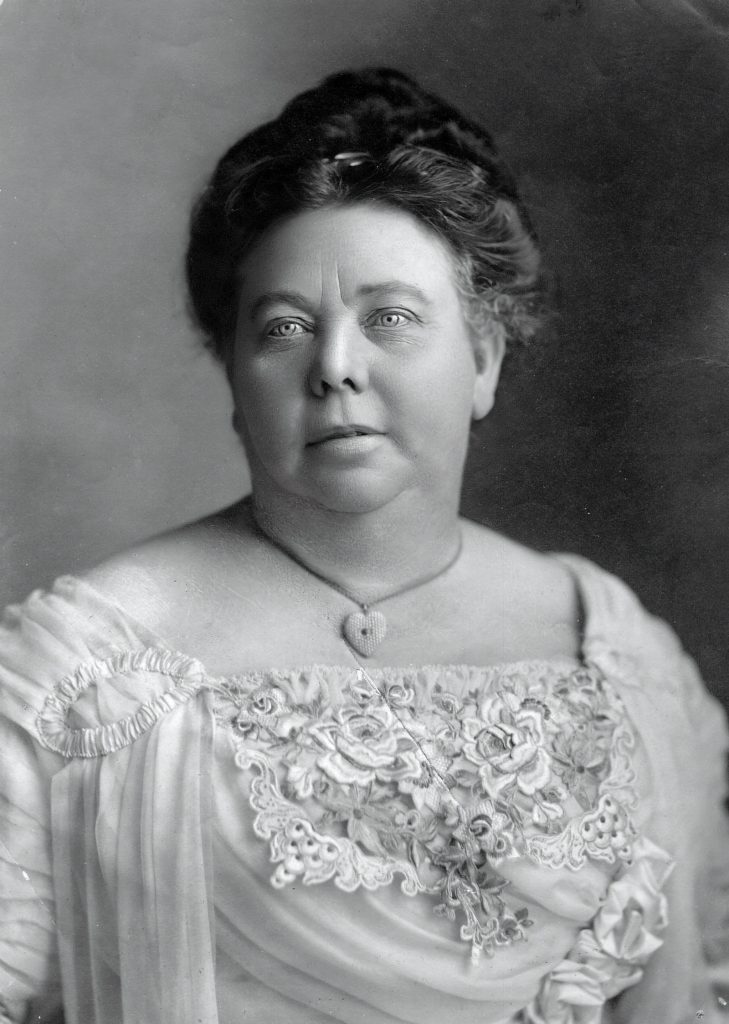
The Suffragist Special is Greeted by President of the Spokane Equal Suffrage Club, May Arkwright Hutton
May Arkwright Hutton was a force to be reckoned with. Raised by her blind paternal grandfather Aza in Washingtonville, Ohio, Hutton developed a strong sense of independence and a passion for politics at a young age, often accompanying him to the political meetings he enjoyed attending.
After moving west as a young woman, Hutton built a life in the mining communities of Idaho, opening her own boarding house in Kellogg. Eventually, she married Levi “Al” Hutton in 1887, and together they moved to Wallace, Idaho, where she oversaw the dining hall of the Wallace Hotel with her husband working for the Northern Pacific Railroad. Together, they built a life in Idaho’s mining communities, eventually saving enough money to buy a stake in the Hercules Mine, where they are reputed to have spent their spare hours working alongside each other.
Through their financial gain and exposure to the challenges faced by miners, the Huttons transformed into a politically active couple deeply involved in local labor associations. This commitment led them into the thick of the violent labor protests that erupted in Idaho in 1899. Al, caught in the turmoil, found himself driving a train loaded with dynamite towards non-union mine sites. Though never convicted, he lost his job with the railroad.
Despite these challenges, 1901 brought a stroke of luck for the Huttons. The Hercules Mine finally struck a rich vein, generating a fortune estimated at nearly $2 million. However, this sudden wealth and elevated social status didn’t sit well with May. Uncomfortable with societal expectations, her outspoken nature and flamboyant style clashed with high society.
May channeled her frustration into self-improvement and social activism. She diligently pursued education and became heavily involved in the women’s suffrage movement. Having already secured voting rights for women in Idaho, she sought to expand the movement’s reach. However, her political ambitions faced a setback when she ran unsuccessfully for the Idaho State Senate in 1904. This defeat didn’t deter May. Determined to broaden suffrage rights, she set her sights on Washington state, arriving in Spokane in 1906, ready to champion the cause with her characteristic directness and unwavering commitment.
By the time the Suffrage Special pulled into the station in 1909, Hutton, now president of the Spokane Equal Suffrage Club and vice-president of the Washington Equal Suffrage Association, was eager to greet her fellow activists as toastmaster for the event. She took charge of scheduling the majority of the visitors’ activities and welcomed many of them into her own home.
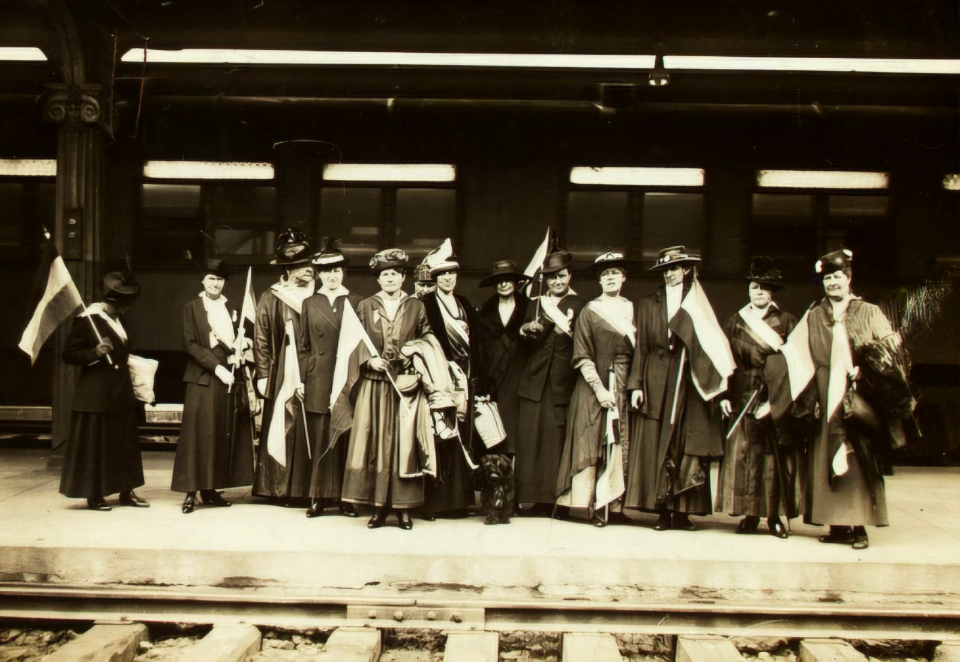
The Lilac City Makes a Powerful First Stop for the Women’s Suffrage Movement and Fight for Women’s Rights
Hutton ensured the visiting suffragists had a jam-packed day filled with activities designed to showcase the city’s hospitality and solidify their commitment to the cause. The day began with a warm welcome at the Spokane depot, followed by a city tour that offered a glimpse of Spokane’s burgeoning charm. Local newspapers reported that the suffragists were even invited to take a refreshing dip in the Spokane Amateur Athletic Club’s swimming pool – a delightful respite from the summer heat.
As the day progressed, the focus shifted towards strategy and raising awareness. The suffragists convened at the lavish Hall of the Doges atop the Davenport Restaurant for a grand dinner. Spokane Mayor Nelson S. Pratt began by giving the official welcome to the honored guests while simultaneously declaring his support for women’s suffrage. Amidst the elegant setting and orchestral music, newspapers reported that prominent figures like Florence Kelley, Anna Howard Shaw, and Emma Smith Devoe delivered speeches, each emphasizing the importance of women’s suffrage.
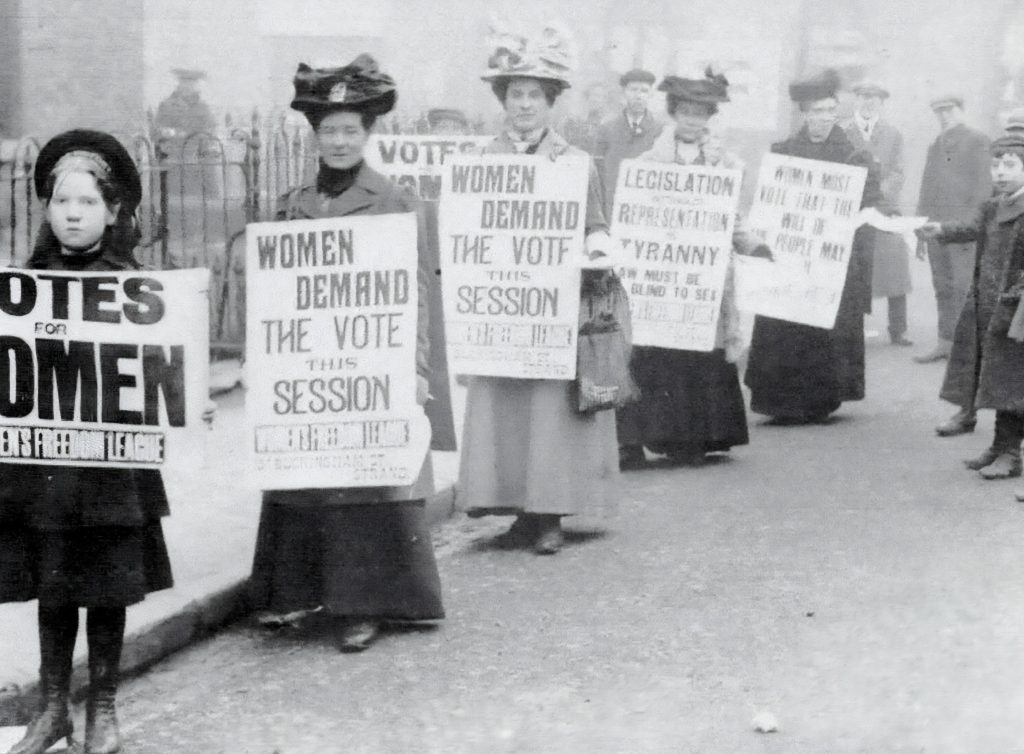
The day culminated in a public meeting held at the First Methodist Church, allowing the suffragists to further connect with the Spokane community and spread their message. Exhausted but energized, the suffragists then boarded the Suffrage Special, ready to continue on to the next city, their numbers now greatly enlarged as the Spokane delegates boarded the train right alongside them, including May Arkwright Hutton. Date of departure: June 29, 1909, 2:30 a.m.
This campaign for women’s suffrage across Washington would come to be considered a key event in the history of the movement in the United States. Spokane, the first city on the whistle-stop tour, played a pivotal role in setting the stage. Here, the visiting suffragists were met with warmth, strategic planning, and a clear message of support. The eight-city tour that followed Spokane further galvanized public opinion, ultimately leading Washington to become the first state in the 20th century to grant women the right to vote in 1910. This victory not only empowered Washington women but also provided a national model and a surge of momentum for the broader suffrage movement, ultimately paving the way for the passage of the 19th Amendment a decade later. The tireless efforts of May Arkwright Hutton and the Spokane suffragists resonated far beyond Lilac City, leaving a lasting legacy in the fight for women’s equality.

